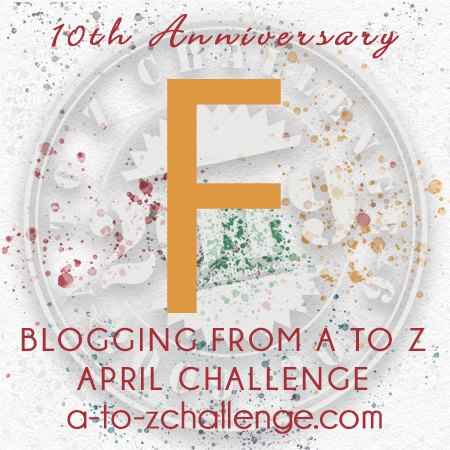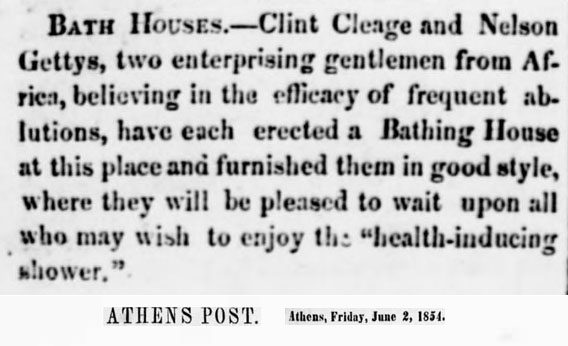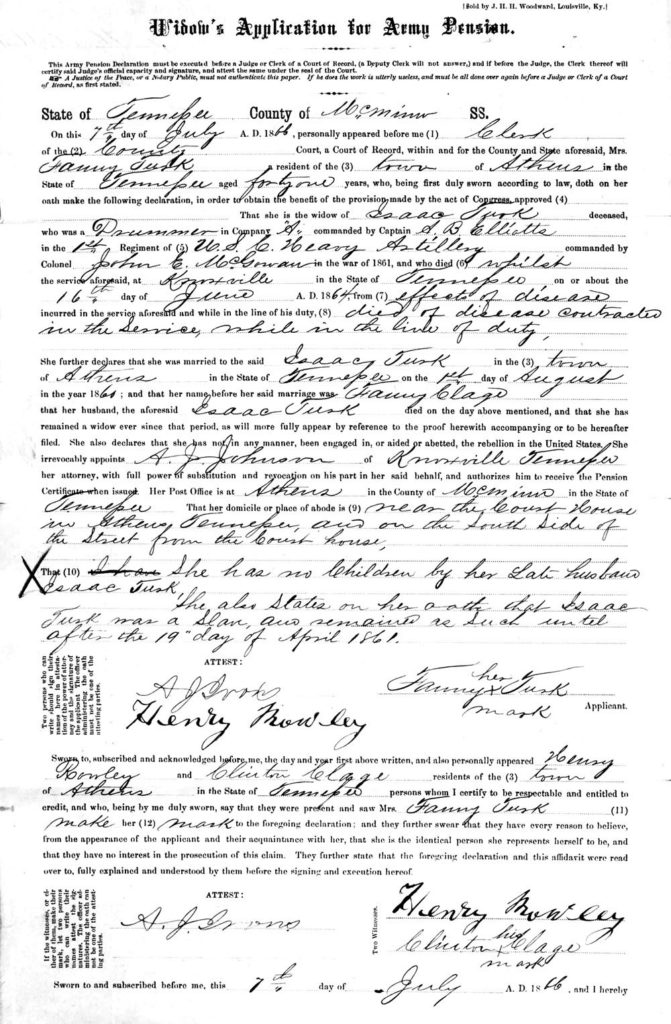
This is my 7th year participating in the A to Z Challenge. In the 2015 challenge, I wrote about the Cleages formerly enslaved on the plantations of Samuel and his sons Alexander and David Cleage of Athens, McMinn County, Tennessee. Most of the people in these posts are not related to me by blood or DNA, however my ancestors were enslaved on the same plantations with them.
This year I ordered the files of the Cleage men who served in Co. I, 1st Regiment, United States Colored Heavy Artillery (USCHA), during the Civil War. Through these files I learned that their lives were much richer and more complex than census, death and other records can show. I am using the information from pension files and records that I found through the files for this years challenge.

“Clint Cleage and Nelson Gettys, two enterprising gentlemen from Africa, believing in the efficacy of frequent ablutions, have each erected a Bathing House at this place and furnished them in good style, where they will be pleased to wait upon all who may wish to enjoy the “health-inducing shower.” Athens Post, June 2, 1854.
I found this little item while looking for articles about Cleages. I found no other mention of the bathing house and have no idea how it worked. After freedom both men operated various small scale businesses. Clint Cleage was Amanda Cleage’s father and also the father of Addie Cleage, Edmund Sherman‘s wife. I have a bill of sale for him to David Cleage which you can read in this post from the 2015 A-Z “Dick” Cleage. Both Clint Cleage and Nelson Gettys were enslaved at the time of their enterprise.
Clinton Cleage was Sallie Cleage Marsh’s husband. She gave birth to 14 children. He appears on the death certificates of those who died after death records were kept. He also appeared in the bill of sale mentioned above and this newspaper clipping. His daughter Amanda testified at her Widow’s claim hearing that he had a little restaurant in Chattanooga where she was married on her way West. And he appears below in Fanny Cleage Turk’s widow’s pension application. He appears in no census records, no death record of his own, and no directories. The last record he appears in was dated 1866. He must have died before 1870, the first census taken that he would have appeared in as a free man.

Widow’s Application for Army Pension
State of Tennessee County of McMinn
On this 7th day of July A.D. 1866, personally appeared before me Clerk of the County Court, A court of Record, within and for the County and State aforesaid, Mrs Fanny Turk a resident of the town of Athens in the State of Tennessee aged forty one years, who, being first duly sworn according to law, doth on her oath make the following declaration, in order to obtain the benefit of the provision made by the act of Congress approved (blank) That she is the widow of Isaac Turk, deceased who was a drummer in Company “A” commanded by Captain A. B. Elliotts in the 1st Regiment of U.S.C. Heavy Artillery commanded by Colonel John E. McGowan in the war of 1861 who died whilst the service aforesaid, at Knoxville in the State of Tennessee, on or about the 16th day of June A.D. 1864, from effects of disease in the service, while in the line of duty. She further declares that she was married to the said Isaac Turk in the town of Athens in the State of Tennessee on the 1st day of August in the year 1864; and that her name before her said marriage was Fanny Clage that her husband, the aforesaid Isaac Turk died on the day mentioned, and that she has remained a widow ever since that period, as will more fully appear by reference to the proof herewith accompanying or to be hereafter filed. She also declares that she had not in any manner, been engaged in, or aided or abetted, the rebellion in the United States. She irrevocably appoints A.J. Johnson of Knoxville Tennessee her attorney, with full power of substitution and revocation on his part in her said behalf, and authorizes him to receive the Pension Certificate when issued. Her Post Office is at Athens in the County of McMinn in the State of Tennessee. That her domicile or place of abode is near the Court House in Athens, Tennessee, and on the south side of the street from the Court House. That she has no children by her late husband Isaac Turk. She also states on her oath that Isaac Turk was a slave and remained as such until after the 19th day of April 1861.
Fanny (her X mark) Turk (applicant)
Attest: A. J. Ivans. Henry Rowley
Sworn to, subscribed and acknowledged before me, the day and year first above written, and also personally appeared Henry Rowley and Clinton Clage residents of the town of Athens in the State of Tennessee persons whom I certify to be responsible and entitled to credit, and who, being by me duly sworn, say that they were present and saw Mrs. Fanny Turk make her mark to the foregoing declaration; and they further swear that they have every reason to believe, from the appearance of the applicant and their acquaintance with her, that she is the identical person she represents herself to be, and that they have no interest in the prosecution of this claim. They further state that the foregoing declaration and this affivadit were read over to, fully explained and understood by them before the signing and execution thereof.
Attest: A. J. Ivans.
Two Witnesses:
Henry Rowley
Clinton (his X mark) Clage
Sworn to and subscribed before me, this 7th day of July A.D. 1866, and I hereby…..
******
I wondered why I had no comments and checked and somehow I had turned of “allow comments”! It’s back on now.
This is fascinating! Archival historical research turns up such an amazing treasure trove of information.
Someone is going to send me more information about the bath houses. I can’t wait.
Wow. This must have taken some deep digging to find. What a great thing to research. I’d like to know more about the bath house too! Happy A to Z!
Actually, I just went to one of the newspaper sites, put in “Cleage, Athens, Tennessee” and gave dates and it came up with some other more mundane stories. There was also one about a Cleage found in a tree, which I should look into.
Ha–now I can comment! I’m trying to imagine what these “bathing houses” were like–and back in the 1950s–so they opened them while still enslaved. I see they were called “enterprising.” In my mother’s childhood, where none of the houses had indoor toilets, let alone bathrooms, people would go down to the public baths to bathe and to wash their clothes. I wonder if this was some kind of public baths. Alternatively, it might have been a place for men to go in the little leisure time they had. Looking forward to hearing what you find out.
By mistake I had turned off commenting and just noticed this morning after wondering why I didn’t get even one comment.
1850s, yes while they were still enslaved. I am sure it wasn’t for the enslaved people.
I tried commenting on the last post but couldn’t find the box to do the same. I’m amazed at the amount of research that has gone into writing these posts. Are you planning to convert them into a book later? I feel you must because it will be an amazing read.
I’ve thought about it.
I had turned off comments by mistake! I wondered why nobody was commenting 😀
You know this reminded me of the ‘hammams’ or the public bath houses in North Africa!
Glad the comment box is back.
I’m glad the comment box is back on too!
How interesting that they had their own business while still enslaved. As always, history is far more complex than we think.
And Sallie having 14 children?? I can’t even think about it…
I’m waiting to receive more information about this business.
Some enslaved people were allowed to work on their own time and earn money, which they sometimes used to buy their freedom. I’m not convinced Alex Cleage would allow this.